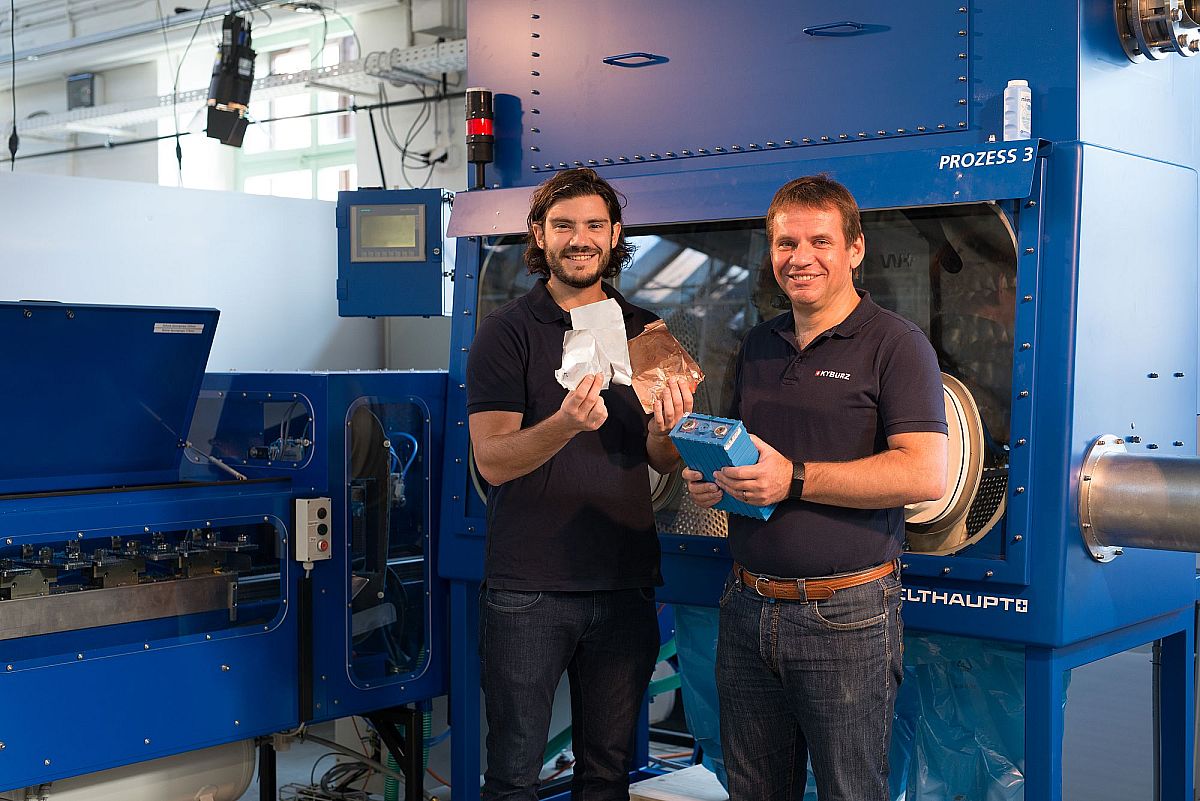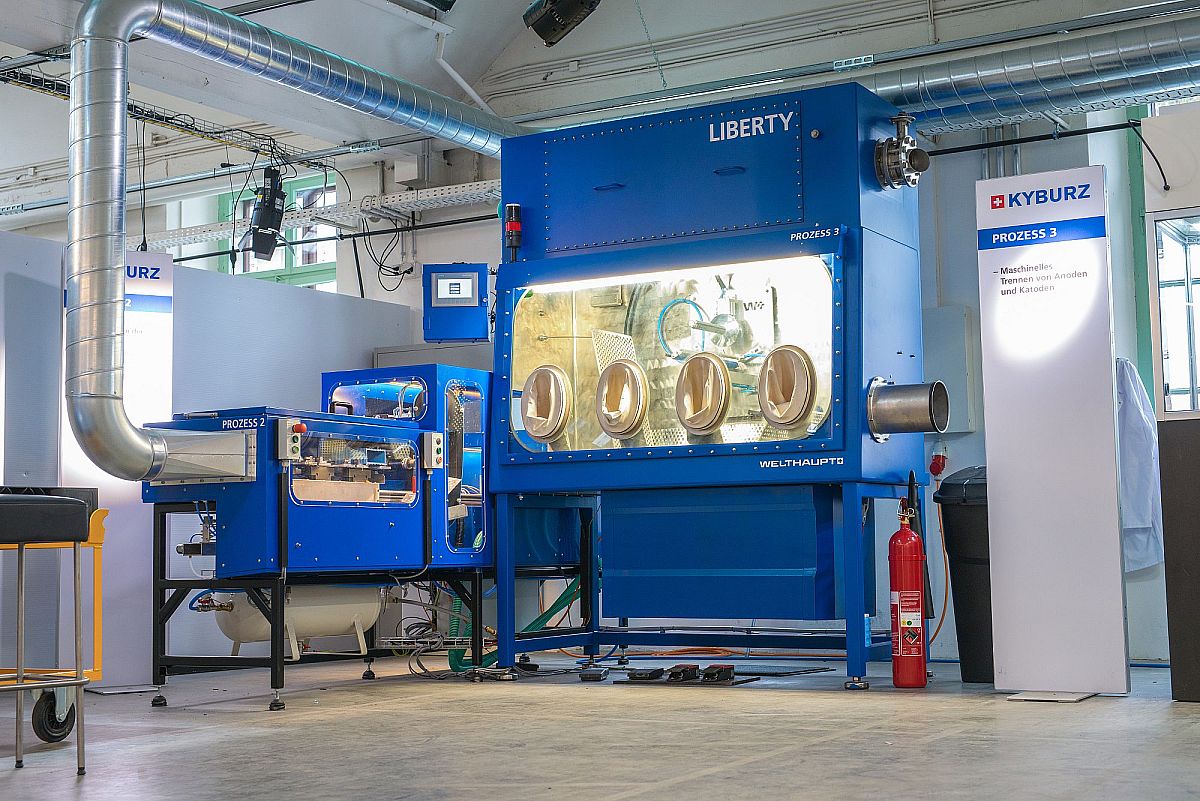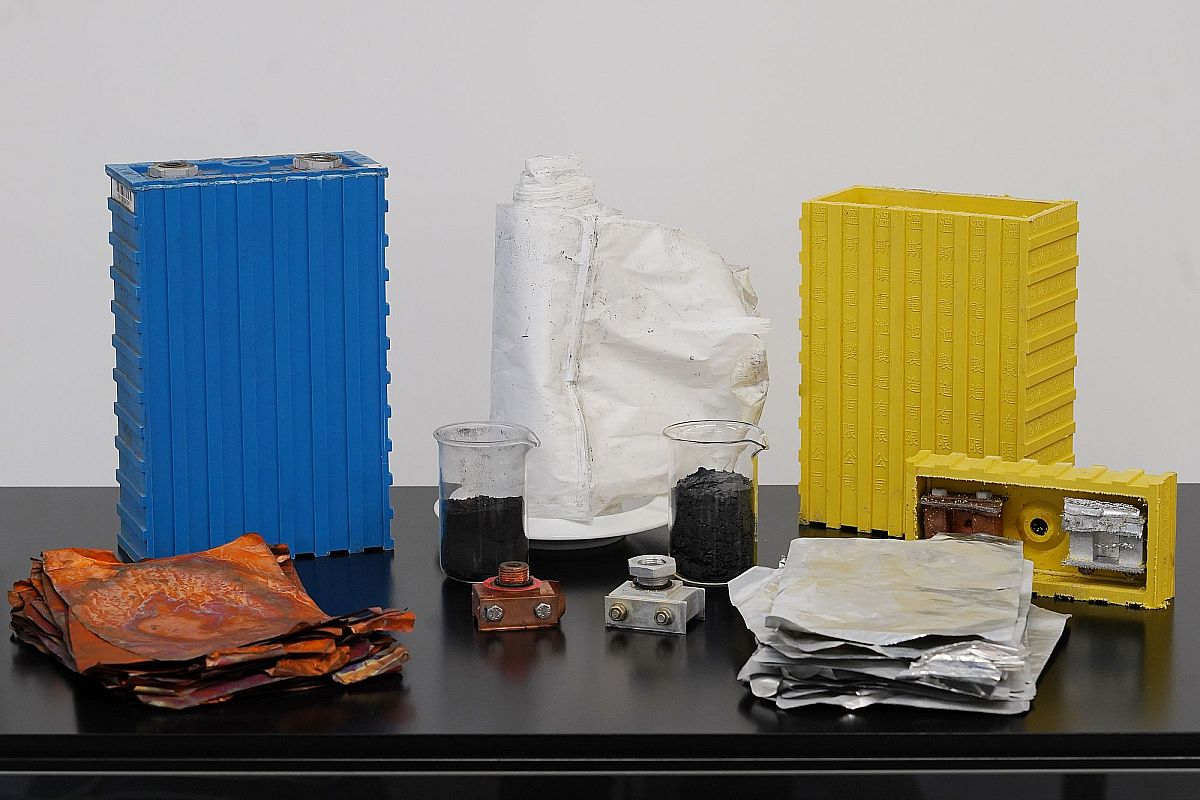Battery recycling – the opportunity for all our futures

Almost 2 years have passed since our battery recycling plant was inaugurated. In the meantime, the team around Olivier Groux has made many tests and carried out many measurements with our machine, which has been christened "Liberty 1". The "Liberty 1" is the central element of the system. We have already dismantled many batteries and sent the materials obtained from them to various laboratories to determine the composition and especially the purity of the substances. The only thing we lose when we open the cells is the electrolyte. This is an alcohol solution that is highly volatile. Some of it can be collected - but most of it ends up in the atmosphere. That's why we put the system under a slight negative pressure. All the gases produced are captured by a filter system. This filter has also been the subject of research. How long will it last?
The second process step also had to be developed. Our first machine, "Liberty 1", only opens the cells and separates them into plastics, anode and cathode. The latter were still coated. In the second process step, the anode and cathode had to be separated from the graphite coating and the lithium iron sulphate coating. This had worked very well in the laboratory four years ago. The challenge was to develop a second machine to carry out this step. This hurdle was also overcome.

Today, we can process all the batteries that we produce. Since the life span of lithium-ion cells is very long and they can still be used in stationary applications after their use in our new and 2nd life vehicles, only very few cells are produced for recycling today. At present, this amounts to between 10 and 50 cells per week, which can be processed with about 4 hours of machine running time. Since the machine still needs some optimisation, it is constantly being improved and optimised, which also costs time.
In the foreseeable future we will have the definitive operating licence. From then on, we will be able to recycle more cells from customers and turn them back into valuable raw materials. Our machine will be in operation for up to 40 hours per week, which means that we will recycle 3.5 tonnes of batteries into their raw materials. A lot of work for Olivier's team.
Groups of visitors keep coming to marvel at the plant. This is intentional, as we want to spread the word about our technology, which is now referred to as "direct recycling". Olivier is often invited to give talks and visit other companies. His team has analysed other lithium-ion cells and found: 'All the chemistries we have studied so far could be converted back into their starting products using the same process. We have proven that it is possible - now the knowledge just must spread.
I had learned the overriding lesson from Prof. Dr. Markus Braungart at our first Circular Economy Congress. We humans, animals and plants live in the biosphere. In addition, there is what he calls the technosphere. All the objects we use consist of raw materials that are extracted from our earth and, according to him, migrate into the technosphere. Our task is to use the materials in it as long as possible. This is done by returning the raw materials to their unchanged form in a product, e.g. a battery cell, and using them to make new batteries again. We must leave the single-use society behind and develop into a society in which we value people, nature and technical objects. For us engineers who develop new products, this means that we must think about how our products can be broken down into individual parts and then returned to the material cycle. In this way, we will not only solve the raw material problem, but also the entire waste management.
Furthermore, we must design all the wear and tear materials in such a way that they are not harmful but useful for nature. Prof. Braungart mentioned tyre wear on cars as an example. It should be designed in such a way that the abrasion nourishes nature as fertiliser and does not end up as pollutants in our lungs. Thirdly, we must get a grip on the energy cycle, which is technically possible. It is purely a question of will and focus. It is important for us humans to gain awareness and understand our workings in nature. We need to grow up. Our battery recycling can help a lot with this step.
From this point of view, Olivier Groux and his team have the task of ensuring that every battery in the world that is produced is also appropriately turned back into the raw materials using the "direct recycling" process. And that is just the beginning.

I learned from this:
- Real scientists can present complex tasks in the simplest way. (Thank you, Markus, for your inspiration)
- Battery recycling can be very simple - provided you find the key.
- There is still a lot to do. We will get there if we move forward step by step.
